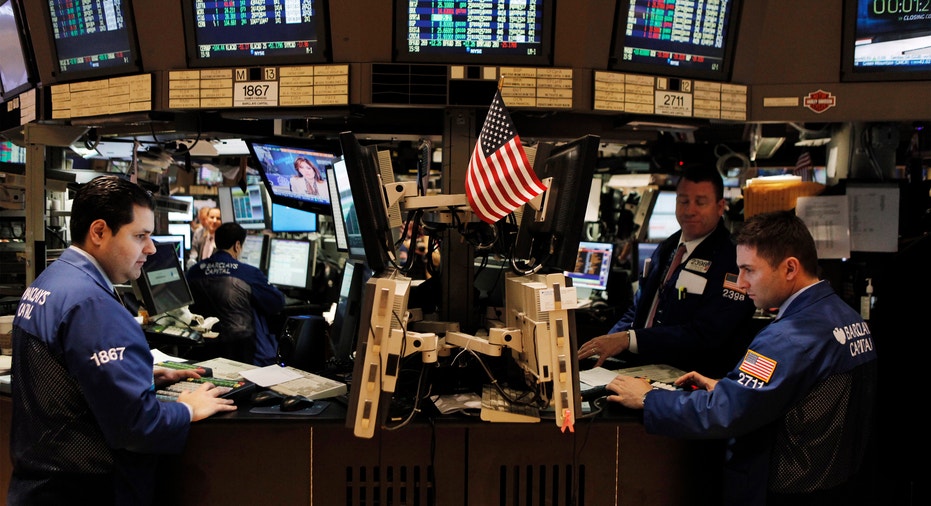Wall Street Ethics An Oxymoron: Survey

Wall Street apparently thinks no better of itself than the average American does.
Bankers, brokers, traders and the like have been targeted for much scorn in the wake of the financial crisis of 2008. The bursting of the U.S. credit bubble left millions of Americans out of work, caused record numbers of home foreclosures, slashed households’ net worth and evaporated retirement accounts.
Rightly or wrongly, Wall Street received much of the blame for these dire circumstances with a majority of Americans holding the view that greedy, unethical bankers cynically exploited a dangerously overvalued housing market to boost their already bloated profits.
Ponzi scheme mastermind Bernard Madoff, former Countrywide Financial CEO and king of the dubious subprime mortgage Angelo Mozilo, and unrepentant Wall Street titans like former Lehman Brothers CEO Richard Fuld became household names and archetypes of financial villainy.
Adding insult to injury, when the bubble burst and Wall Street seemed poised for a comeuppance of its own making, the U.S. government stepped in and bailed the bankers out. Americans who lost their homes in the aftermath of the collapse garnered no such charity.
Hence the widespread disdain for the vast and powerful financial services sector.
What’s surprising is that employees within the sector are just as skeptical of one another’s methods and motives.
"Times are not changing on Wall Street. It’s the same old song and dance, decade after decade."
The results of a survey conducted by the law firm Labaton Sucharow provide astonishingly candid insight into the current mindset of these workers.
According to the results released Tuesday, more than half (52%) of those working in the financial-services sector believe their competitors engage in illegal or unethical practices in order to gain an edge. Nearly a quarter of those surveyed (24%) believe colleagues at their own firms have participated in similar illegal or unethical conduct.
Wall Street Pros Have Lost “Their Moral Compass”
A surprisingly high number of respondents (23%) conceded having first-hand knowledge of unethical behavior in the workplace. An even higher number (29%) said members of the financial services sector may have to behave unethically to succeed in the business.
Additional data culled from the survey would seem to justify the deep skepticism and antipathy felt toward the industry: 28% of the respondents said the industry puts the interests of the firm ahead of those of the client; 24% said they would engage in insider trading if they could get away with it.
And the most ethically-challenged, according to the results, were not the jaded Wall Street veterans but their younger counterparts, a finding that doesn’t bode well for the future of the industry and the countless Americans whose economic well-being depends on it.
Jordan Thomas, a partner at Labaton Sucharow and chair of the firm’s Whistleblower Representation Practice, issued a warning: “Many in the financial services industry appear to have lost their moral compass, and younger professionals pose the greatest threat to investors,” he said. “Wall Street needs to take the first step toward recovery and admit that it has a corporate ethics problem, or Main Street should brace itself for more scandals.”
The results only confirm what a majority of Americans already believe. Polls show most Americans don’t trust Wall Street bankers and feel they do more harm than good.
A June 2012 Gallup poll found Americans’ confidence in banks at a record-low 21%, down from 41% recorded in 2007 just ahead of the financial crisis. Meanwhile, 35% of those surveyed in the same 2012 poll said they had little or no confidence in banks.
A Pew Research Center poll released in December 2011 also reflected Americans’ dim view of Wall Street. More than half of those polled (51%) said Wall Street hurts the U.S. economy more than it helps it. And more than three-quarters (77%) said they believe too much power in the U.S. is held by a few rich people and big corporations, terms that have become nearly synonymous with Wall Street.
Survey Confirms What Many Already Suspected
This skepticism pervades despite high-profile efforts such as the Dodd-Frank banking reform bill passed in 2010 and designed to rein in Wall Street’s excesses and provide additional protection to consumers. But much of that bill remains in flux with the details yet to be worked out.
Meanwhile, the biggest banks, those dubbed “too big too fail” – JPMorgan Chase (NYSE:JPM), Citigroup (NYSE:C), Bank of America (NYSE:BAC) and Wells Fargo (NYSE:WFC) – are bigger now than before the crisis. Congress is only now trying to address whether these megabanks will once again threaten the global economy if one or more stumbles down the road.
One of the primary criticisms of the giant banks is that they’re unmanageable, that no single leader can maintain control of such sprawling operations, leading to debacles like JPMorgan’s London Whale, which cost the bank a cool $6 billion.
That inability to maintain control, combined with an insatiable need to generate larger profits, has undoubtedly contributed to the unethical behavior that clearly remains rampant within the industry.
“The survey confirms what many people have long suspected about the securities industry -- little has changed and securities industry employees act unethically,” said securities attorney Andrew Stoltmann, who frequently represents victims of financial fraud.
“I think this might be news to the Securities and Exchange Commission, but virtually nobody else is surprised by the results of this survey. Times are not changing on Wall Street. It’s the same old song and dance, decade after decade,” he said.



















